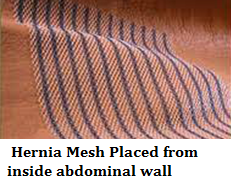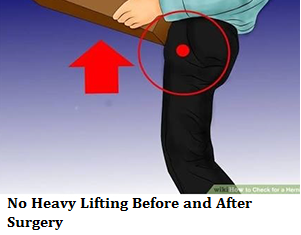Often, we find ourselves faced with questions related to medical problems and surgery. In the modern age of the internet, there is no dearth of information. However the accuracy and the reliability of the source of information poses a problem.
Addressing this issue, in this series of articles, Dr. Baiju Senadhipan takes time out to answer key questions about a range of medical issues and their solutions.
Dr Senadhipan would also endeavour in this series to clear air around popular misconceptions and myths surrounding some of the common digestive diseases. Dispelling those common myths is an important step towards empowering patients in making an informed choice.
Following are some of the common questions Dr Senadhipan gets from most of his Hernia patients and below each question are his answers for you to make an informed choice. Hope you find them helpful:
1. What is Hernia?
 Hernia is a protrusion (overhang) of the bowels or adjacent organs /tissue through a defect or weakness in the abdominal wall. Typically, a hernia occurs with a part of the intestine protruding or hanging out through an opening formed in the abdominal wall.
Hernia is a protrusion (overhang) of the bowels or adjacent organs /tissue through a defect or weakness in the abdominal wall. Typically, a hernia occurs with a part of the intestine protruding or hanging out through an opening formed in the abdominal wall.
2. What are the symptoms of Hernia?

A patient with hernia normally experiences deep discomfort and pain. Especially while coughing, lifting heavy objects or standing for long hours. This pain results from the pressure of the organ or tissue that is pushing its way through the defect in the abdominal wall. As the condition worsens, the pain increases.
Apart from feeling pain, the patient may also be able to see the hernia. One may observe a lump in the abdomen or groin. This lump may enlarge over time.
3. Is it urgent to treat Hernia?
Yes. Hernia must be treated immediately. If it is not repaired at the earliest, more risks and complications may result in the future. An untreated hernia only gets worse increasing the levels of discomfort and pain.
4. Can I wait for sometime? What are the repercussions of waiting?
Waiting for a few months involves risk. One might experience pain especially while lifting heavy objects. Further if blood supply gets reduced to the protruded part, it might result in gangrene. If one is unable to undergo the hernia operation immediately, it is necessary to take some precautions to minimize the risks. Lifting of heavy weight should be avoided.
5. Any diet or medication to keep Hernia in control or to prevent Hernia?
No. There is no diet or medication that can keep Hernia in check or prevent it. Hernia will not go away with wearing a belt or weight loss or exercise. The belt may only reduce discomfort temporarily. The only long term solution is surgery.
6. What causes Hernia?
The weakness in the abdominal wall can be a condition with which the patient is born. Alternatively, the weakness could have resulted due to external factors like smoking or due to a previous surgery. Age and Obesity also contribute toward this condition.
7. How is Hernia diagnosed?
A physical examination is conducted to diagnose Hernia. Upon diagnoses, the patient will have to consult with a surgeon for further treatment.
8. What sort of surgery is required to repair Hernia?
Hernia can be repaired either through open surgery or Keyhole (laparoscopic) surgery. Keyhole (laparoscopic) surgery involves the insertion of a small camera at the tip of a slender tube with cables into the patient’s body through miniature incisions of the size of 1-3 rice grains (5mm-12mm). The abdomen is then inflated with gas to allow the surgeon space to work inside the patient’s body. Special instruments and tools are used to operate in Keyhole surgery what is also known as minimally invasive surgery (MIS).

The Hernia is placed back into the abdomen from where it was projecting out. The weak tissue is reinforced with a mesh that prevents the Hernia from coming out of the weak abdominal wall again. Using a mesh provides two advantages: 1. It reduces the chances of recurrence and 2. The mesh also reduces the sutures required to put the Hernia back into place.

9. What is the preferred method to treat Hernia? Open surgery or Keyhole surgery?
Keyhole or Laparoscopic surgery involves less risk and less complications. This is because, unlike in open surgery, the size of the incision made in a laparoscopic surgery is smaller. While in an open surgery, the incision is the size of a palm of an adult hand(6-9 inches), in case of a laparoscopic surgery, each incision is the size of one to the rice grain (5-12 mm). The smaller surgical incision results in less pain, quicker recovery, reduced risk of surgical site infection and post-operative complications.
Moreover, in case of laparoscopic surgery, a relatively larger mesh can be inserted into the patient’s body, which is not possible in an open surgery. This reduces the risk of recurrence of Hernia.
10. Why is the cost higher in case of a laparoscopic repair?
In case of laparoscopic repair, the surgery involves the insertion of a special kind of mesh called a dual mesh. This is especially so in case of Ventral Hernia. Due to the use of this special kind of mesh, the cost is slightly higher.


11. Once treated, can the Hernia come back?
Yes, it may happen in some cases. There is a small chance of recurrence / repeat of Hernia. This depends on what kind of repair the patient has undergone and other factors like whether the patient has avoided strain after surgery etc.
12. What, if anything, can be done to avoid the Hernia from coming back / Recurring?
Chances of recurrence i.e. the problem of Hernia arising once again can be reduced by the insertion of a larger mesh, by ensuring that the mesh is fixed properly by a skilled and experienced surgeon and by following the post-operative precautions like avoiding lifting of heavy objects. Our experience with more than 5000 Keyhole Hernia Surgeries has witnessed near zero recurrence as we take special care in how we fix the mesh and counseling patients.
Chances of recurrence are higher when the repair is done with a non-mesh technique.
13. What precautions does the patient need to take before and after the surgery?
 Before the surgery, the patient must avoid lifting heavy objects and limit his/her activity. This will provide temporary relief until the surgery. After the surgery also the patient must avoid lifting anything heavy. After about 3 months of the surgery, the patient can lift about 20 kgs.
Before the surgery, the patient must avoid lifting heavy objects and limit his/her activity. This will provide temporary relief until the surgery. After the surgery also the patient must avoid lifting anything heavy. After about 3 months of the surgery, the patient can lift about 20 kgs.
14. What is Hiatus Hernia? Does it always need treatment?
Hiatus Hernia is a condition where the junction between the food pipe and the stomach is drawn up to the lower chest. It can cause symptoms of reflux and can be repaired laparoscopically if found to be symptomatic. The method of repair is called fundoplication which is a technique where part of the stomach is wrapped around the oesophagus and stitched into place.
If the Hiatus Hernia is symptomatic, it requires treatment.

15. What are the other types of hernia?
Different types of hernia include inguinal hernia, femoral hernia, umbilical hernia, incisional hernia, lumbar hernia, spigelian hernia, obturator hernia, diaphragmatic hernia. You must ask your surgeon to explain the exact nature of the Hernia and the method that is most appropriate for your treatment.

16. What is the protocol for Hernia treatment in the paediatric age group?
In some cases, a child is born with a weak abdominal wall and prone to Hernia. In case Hernia is observed in the paediatric group, it need not be repaired till two years. Moreover, a mesh need not be used for children.
17. What complications can arise after Hernia surgery?
All surgical procedures involve some element of risk. Some of the complications that can arise after a hernia surgery are adverse reactions to the mesh, rejection of the mesh, infection to nearby organs, mesh erosion and migration. Pain and recurrence or return of Hernia are other risks associated with this surgery.
18. Is General anaesthesia required?
Yes, where the hernia is operated by Keyhole method (laparoscopically), the patient is required to be under General Anaesthesia.
19. How long after a Hernia operation, can one return to work?
Where the operation has been performed using Keyhole (laparoscopic) methods, the patient may resume work after one week of the operation. This is provided no complications have arisen in the case and the patient has taken the necessary precautions mentioned above. If the operation has been performed through open surgery, it may take a few weeks for the patient to return to work.
20. I have heard about mesh allergy. What is it and what is the solution?
The mesh inserted into the body during a hernia surgery to keep the hernia back in place is a foreign object. Although most good companies use inert material mesh and sterile packing, in a few cases the patient’s body may reject this mesh and it may result in mesh allergy, infection, fluid collection, fistulisation etc. In case this happens, the mesh needs to be explanted or removed. Hernia repair in such patients may be done without using the mesh, although its not a ideal solution.